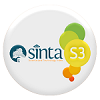History Education in Curriculum 2013: A New Approach to Teaching History
Abstract
There have been so many findings and thoughts indicating that teaching history is dominated by what teachers tell of what happened in the past as it is written in textbooks or reference books. Students listen, read, and memorize the narration, and the more details the student can memorize, the higher mark she/he will get. The plan for teaching history, syllabus, or lesson plan shows a high level of consistency amongst the learning objectives, teaching processes, and student learning outcomes assessment. Memorize of historical facts and the reproduction of historical narratives as an indication of student’s understanding of historical events, the transmission of information from teacher to student to realize the objectives, and the use of pencil and paper tests to assess student level of achievement is the standard practices in school from primary to secondary education. It would be no surprise if teaching history at the higher level of education would follow the same path. The public still considers a good scholar or historian, in this case, is measured by the amount of knowledge she/he can memorize. She/he should answer many questions about the facts of historical events. There is no question of how many a student has in her/his memory apart from what is questioned
Keywords
curriculum 2013, history education
Full Text:
PDFDOI: https://doi.org/10.17509/historia.v14i2.44294
Refbacks
- There are currently no refbacks.
Copyright (c) 2025 Historia: Jurnal Pendidik dan Peneliti Sejarah
INDEXED
TOOLS

This work is licensed under a Creative Commons Attribution-ShareAlike 4.0 International License.
Alamat Redaksi: Gedung Numan Soemantri, FPIPS UPI, Departemen Pendidikan Sejarah, Lantai 2, Jl. Dr. Setiabudhi No 229 Bandung, 40154






